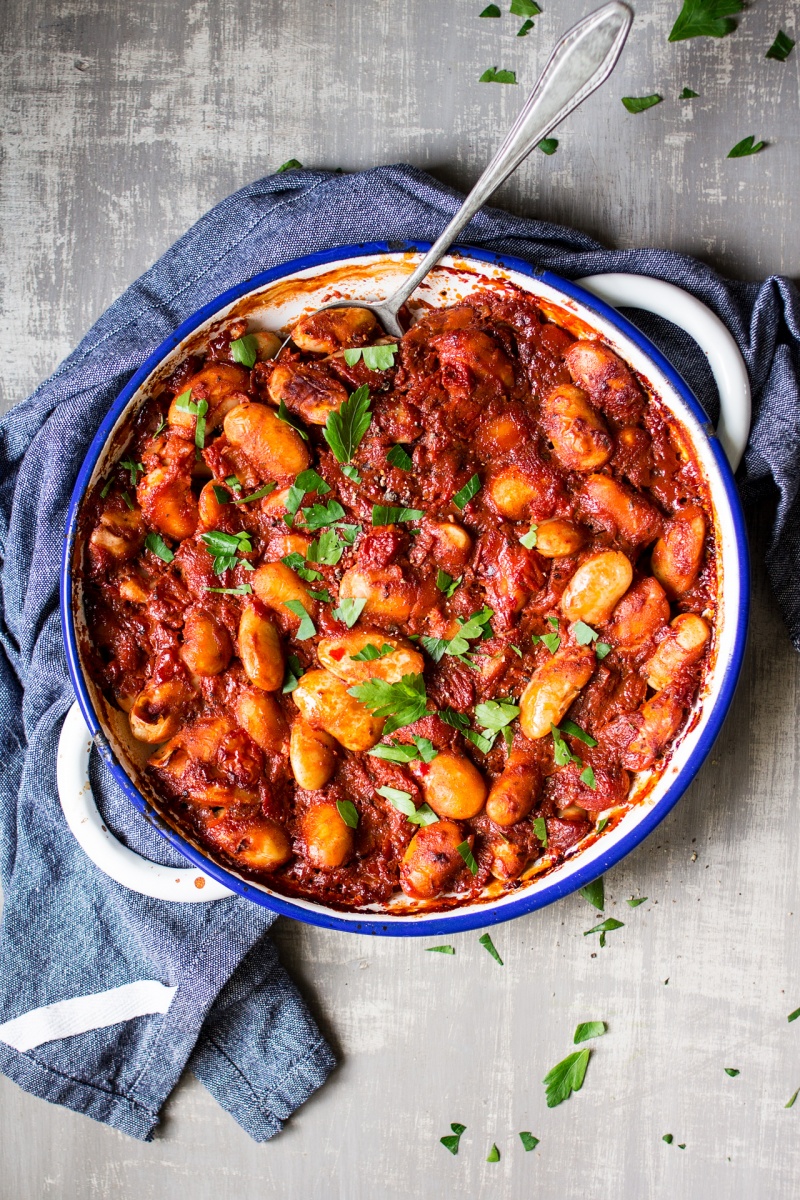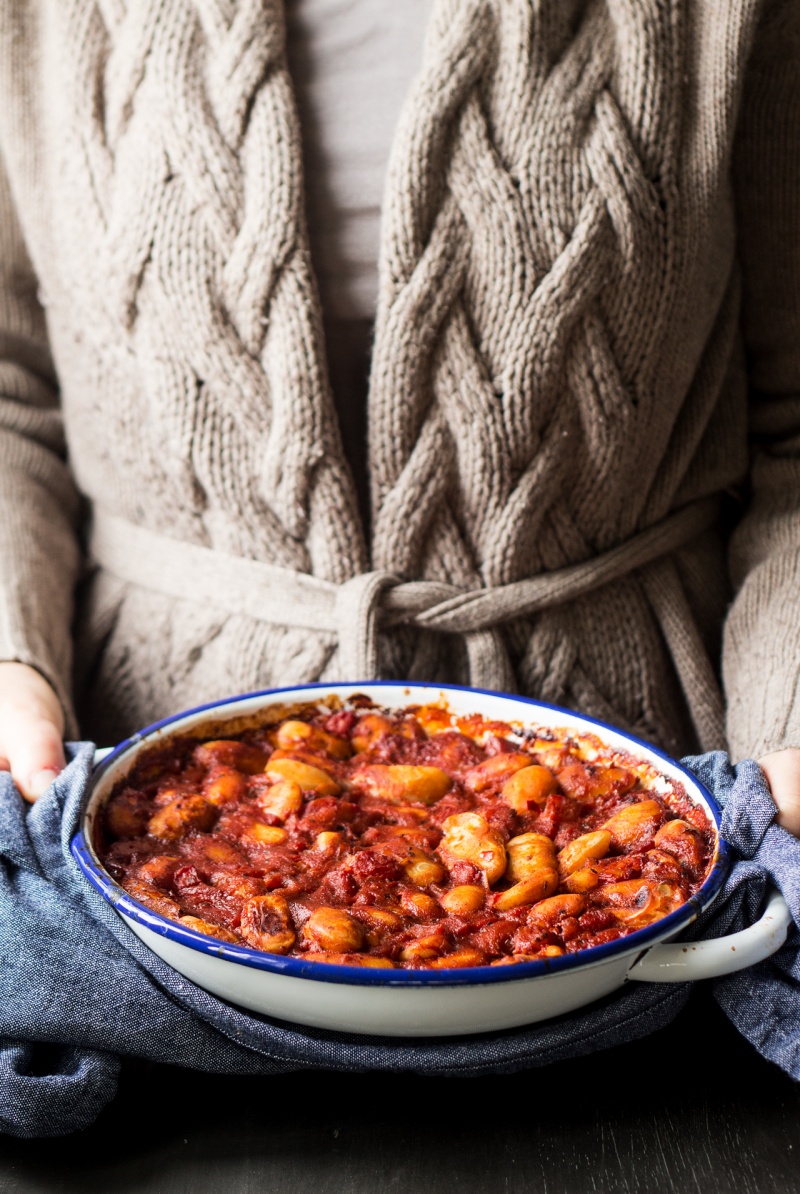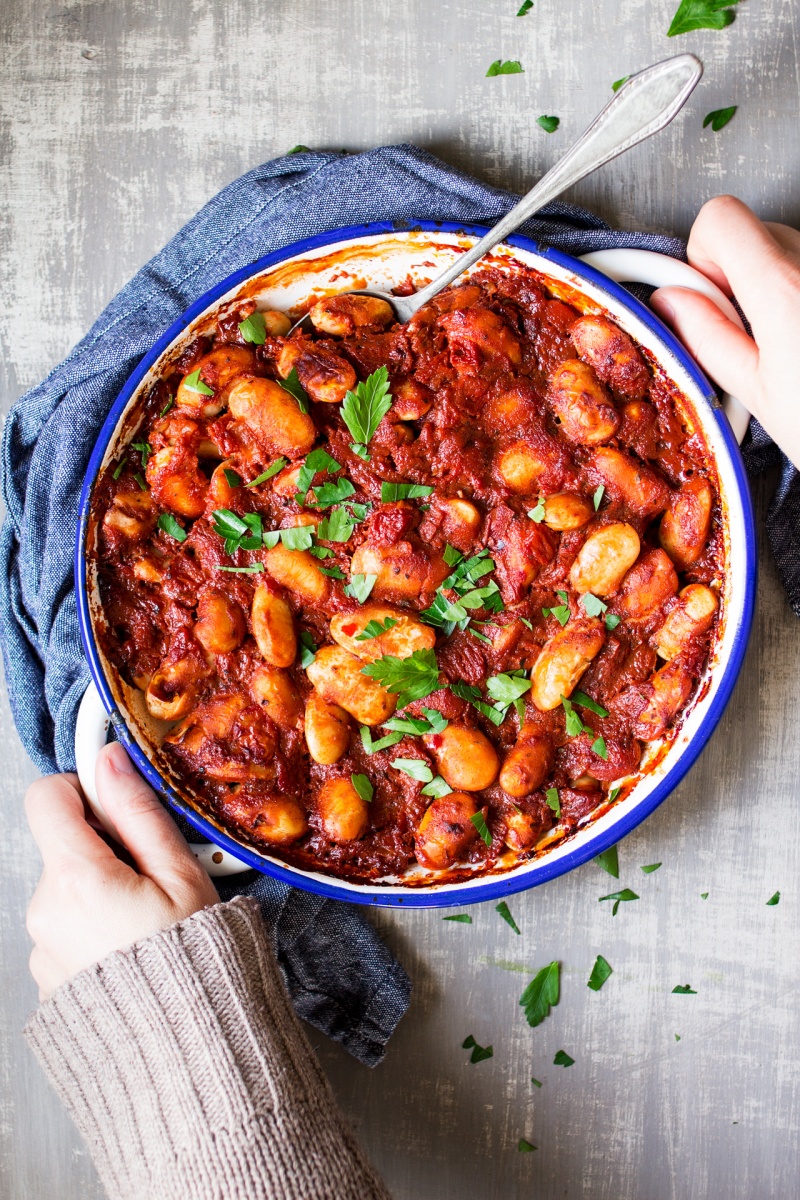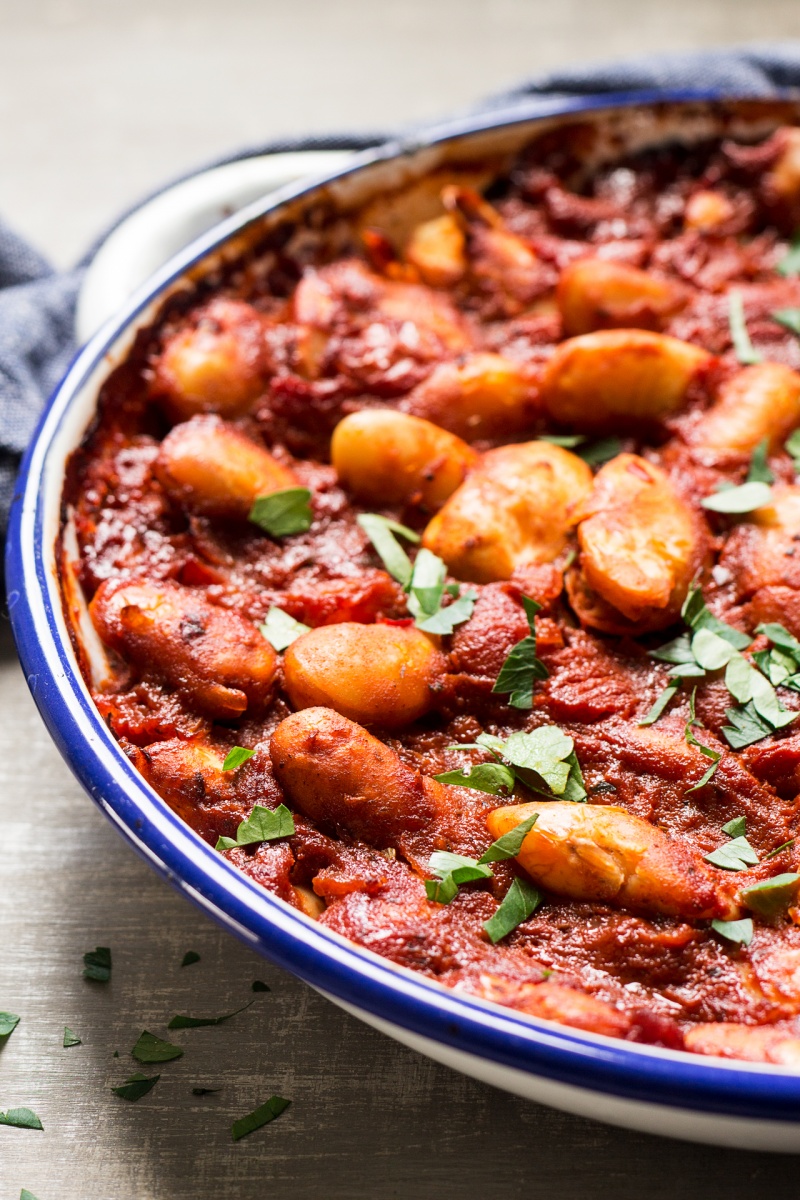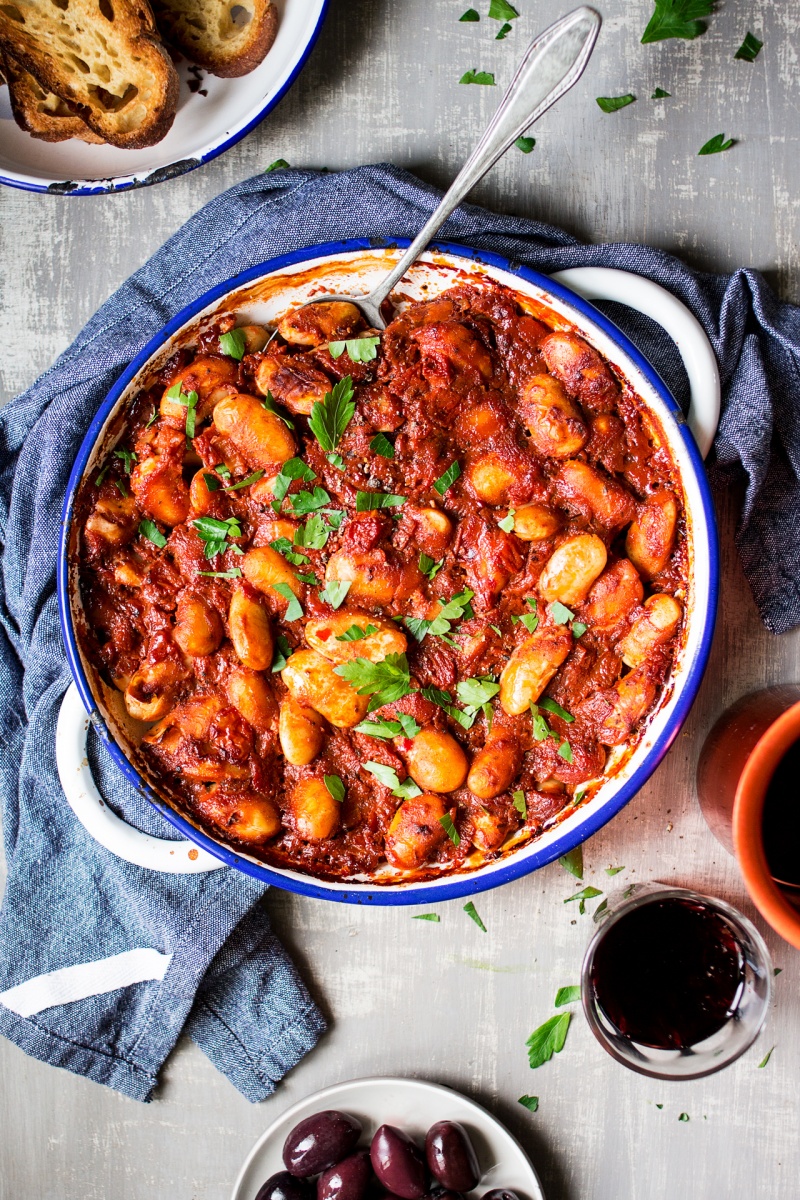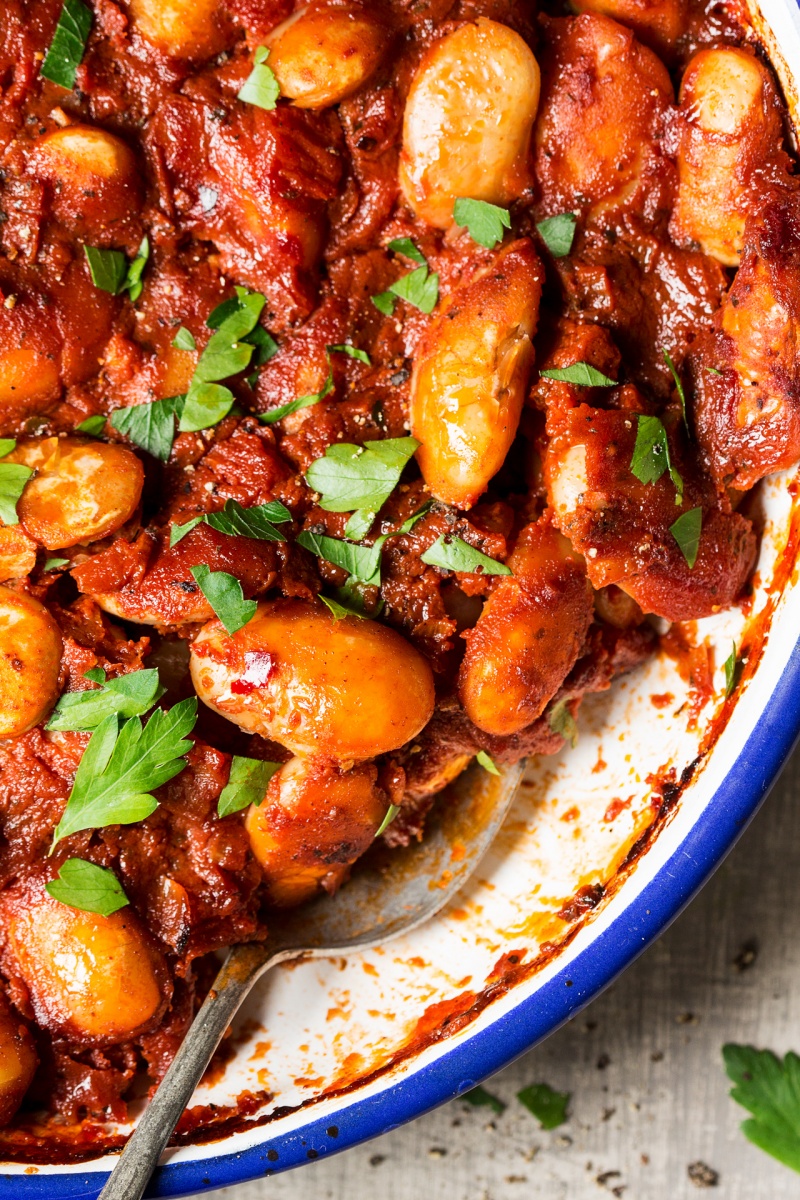-> FOR A NEW, IMPROVED RECIPE, VISIT THIS POST. During my London life, I often wondered why the British nation is so in love with tinned baked beans. People would pour warmed up baked beans on to a baked potato, a piece of toast, or next to eggs, sausage and fried bacon exclaiming ‘yummy’ and ‘this is what I call comfort food’. I have to say I was never sold on the idea of a can of processed food delivering very much in the way of “comfort”, and it kind of put me off the concept of baked beans in general.
Little did I know that I’ll become a baked beans (or gigantes plaki as they call theme here) convert when I move to Greece. The first time I tasted Greek baked beans I couldn’t believe how good they were. They were melt-in-your-mouth soft beans coated in deliciously rich tomato sauce, with a warming note of cinnamon. Initially, I was not too keen on putting cinnamon into my tomato sauce, but tasting this dish proved to me how wrong I was. It’s a delicious combo and it’s the addition of cinnamon that makes the dish taste so good. My version is a bit different from the original. I used smaller beans – traditionally, the Greeks use gigantic white beans in this dish (lima beans or butter beans) – as I prefer those. I also reduced the amount of olive oil. I’ve had Greeks tell me to use about a cup of olive oil in this dish, but I value my arteries too much to do that to them. Admittedly, preparing this puppy is more time consuming than opening a tin; but the effort is well worth it, trust me. This dish is best enjoyed as part of a mezze spread or on its own with some crusty bread to mop up the sauce with and some wine (purely to facilitate digestion, of course). Finally, this is one of these dishes that tastes even better the next day so prepare it in advance if you can.
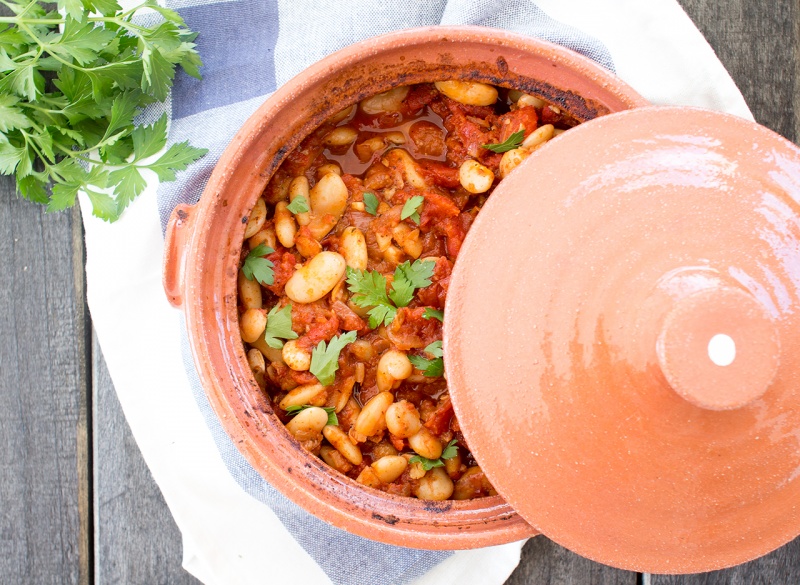
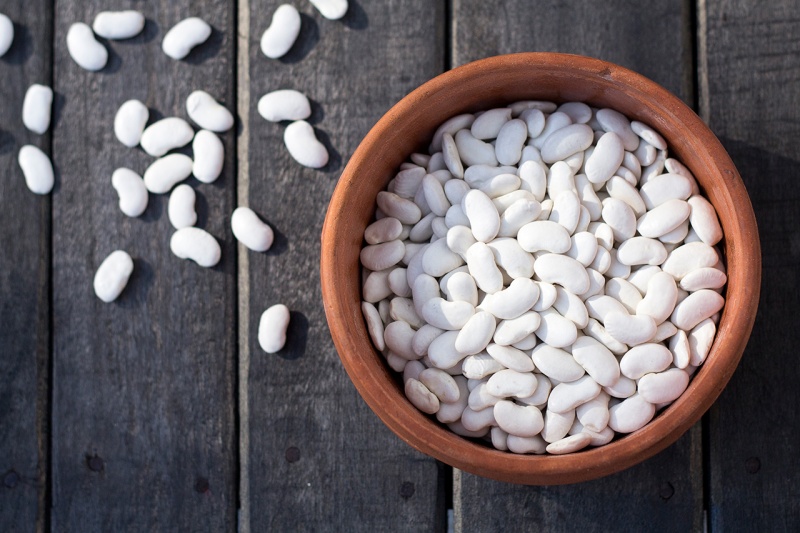
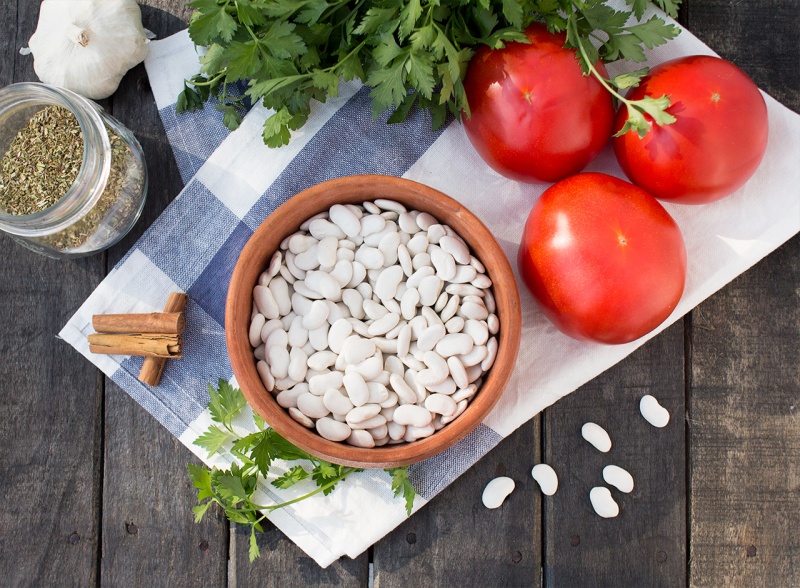
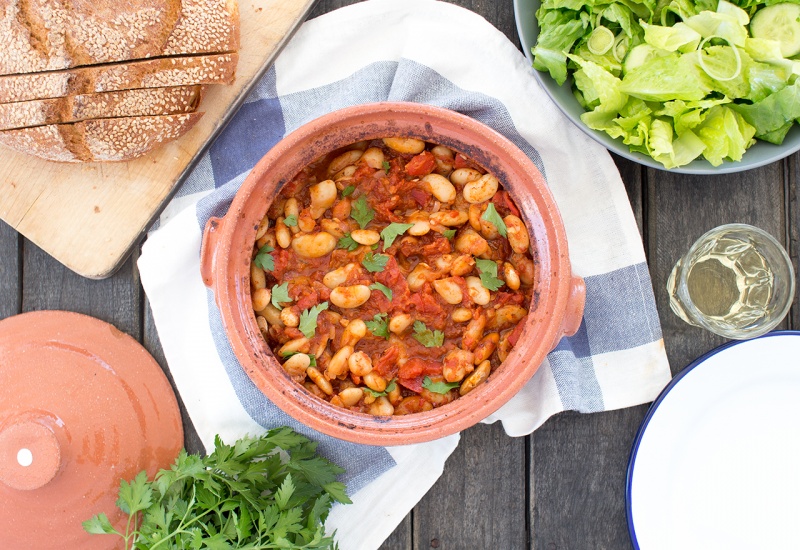
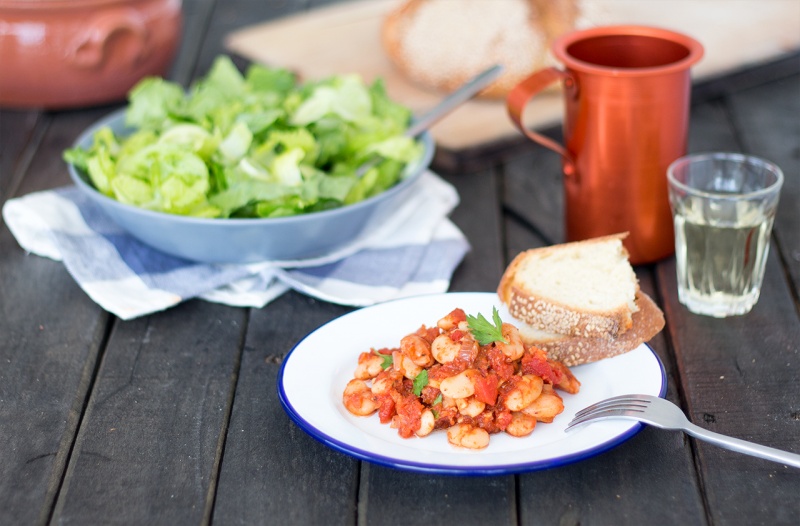
title: “Gigantes Plaki” ShowToc: true date: “2024-10-06” author: “Erik Day”
Being vegan during Greek Easter is hard. In the weeks prior to Easter, when all the fields are covered with lush grass and beautiful wild flowers, you see lots of sweet little lambs frolicking around, enjoying the spring sunshine and trimming the ‘lawns’. They seem so happy and carefree and it makes me sad when we drive past one week later and there are no more lambs… 🙁 .
We used to get invited to traditional Easter lunches but we cannot bear to watch a poor little lamb rotating on the spit while everybody around us goes on about how juicy and delicious the meat is and how much they love lamb (clearly not the happy and carefree kind). They will also be utterly confused as to why we don’t want to eat it or not even a bit of feta cheese. It is ironic that a lot of modern Greeks do not seem to grasp the point of being vegan (or what it even entails) as the idea of abstaining from eating animal products stems from ancient Greece and in its agricultural past. In fact, Greeks used to eat lots of healthy, beautiful meat-free dishes. Even today devout Greeks typically consume these plant-based dishes in the 40 days preceding Easter, although you get the sense that meat abstinence is a bit of a chore for them. Gigantes plaki is the best example of these plant-based dishes and one of our favourite ‘mezedes’ (small plates). It’s beautifully fragrant, simple to make and utterly delicious! It’s a nourishing and satisfying meal with plenty of plant-based protein. It may seem like it takes a long time to make, but it really doesn’t – the oven takes care of most of the work for you! 🙂
